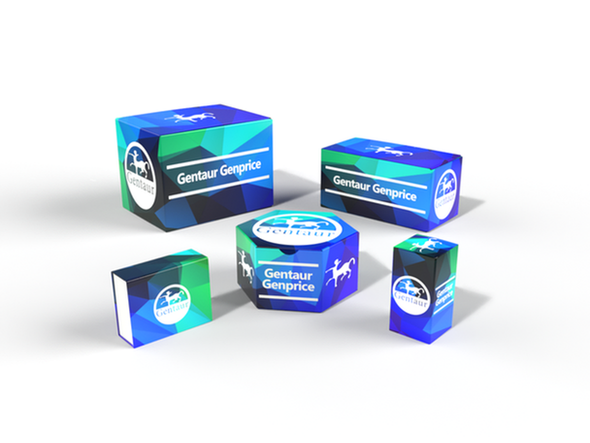Description
DGK-α polyclonal Antibody | BS8566 | Gentaur UK, US & Europe Distribution
Host: Rabbit
Reactivity: Human,Mouse,Rat
Application: WB
Application Range: WB: 1:500~1:2000
Background: Diacylglycerol kinases (DGKs) phosphorylate diacylglycerol (DAG) to produce phosphatidic acid. DAG and phosphatidic acid are lipids that act as second messengers in signaling cascades. DGK-alpha influences cell activation and secretion of lethal exosomes, which in turn control cell death. DGK-beta is abundant in restricted brain regions such as the caudate putamen and olfactory tubercle. DGK-gamma encodes full-length and truncated transcripts that are present in a range of human tissues, with greatest expression observed in retina. DGK-delta is most abundant in skeletal muscle. DGK-epsilon shows specificity for arachidonyl-containing diacylglycerol and is expressed predominantly in testis. DGK-zeta is most abundant in brain and muscle. DGK-eta is closely related to DGK-delta. DGK-theta is most abundant in the cerebellum and hippocampus.
Storage & Stability: Store at 4°C short term. Aliquot and store at -20°C long term. Avoid freeze-thaw cycles.
Specificity: DGK-α polyclonal Antibody detects endogenous levels of DGK-α protein.
Molecular Weight: ~ 83kDa
Note: For research use only, not for use in diagnostic procedure.
Alternative Names: Diacylglycerol kinase alpha; DAG kinase alpha; 80 kDa diacylglycerol kinase; Diglyceride kinase alpha; DGK-alpha; DGKA; DAGK; DAGK1
Immunogen: Recombinant fusion protein containing a sequence corresponding to amino acids 1-200 of human DGKA (NP_958852.1) .
Conjugate: Unconjugated
Modification: Unmodification
Purification & Purity: The Antibody was affinity-purified from rabbit antiserum by affinity-chromatography using epitope-specific immunogen and the purity is > 95% (by SDS-PAGE) .
Pathway:






